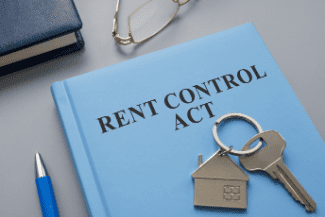Rent Control Explained: How it Affects Landlords and Tenants

Rent control is a type of government regulation that limits the rights of landlords. The limitations can be either limiting the rights to terminate tenancy, the amount of rent you can charge, the amount a landlord may increase the rental charge on an annual basis, or all of the above. RSOs are intended to protect tenants from excessive rent increases and to ensure that they have access to affordable housing.
One of the main advantages of rent control is that it provides stability and predictability for tenants. It prevents landlords from raising rents arbitrarily or excessively, which can help tenants budget and plan for the future. Rent control can also help to reduce homelessness and housing insecurity by ensuring that low-income households have access to affordable rental properties.
However, rent control also has some downsides. Recent studies from both Stanford University and The University of California, Berkeley, have shown that one of the main drawbacks is that rent control can reduce the supply of rental properties. When landlords are unable to charge market rates for their properties, they may be less likely to invest in new construction or maintenance, which can lead to a decline in the quality of the rental housing stock. Rent control can also create incentives for landlords to evict tenants in order to raise the rent, which can lead to displacement, draconian lease agreements, and gentrification. Additionally, rent control can affect the price and/or desirability of a property when an owner goes to sell. If the rents are not at market, and a new owner is unable to increase the rents to market, then that property will likely sell for much less than another property that is not under the same regulations.
When it is all said and done, rent control is a complex and controversial policy with both supporters and opponents. While it can provide benefits for tenants, it can also have unintended consequences for the housing market and the overall economy. It is important to carefully evaluate the pros and cons of rent control and consider other possible solutions to the affordable housing crisis.
Need a Lease Agreement?
Access 150+ state-specific legal landlord forms, including a lease.















 Accessibility
Accessibility